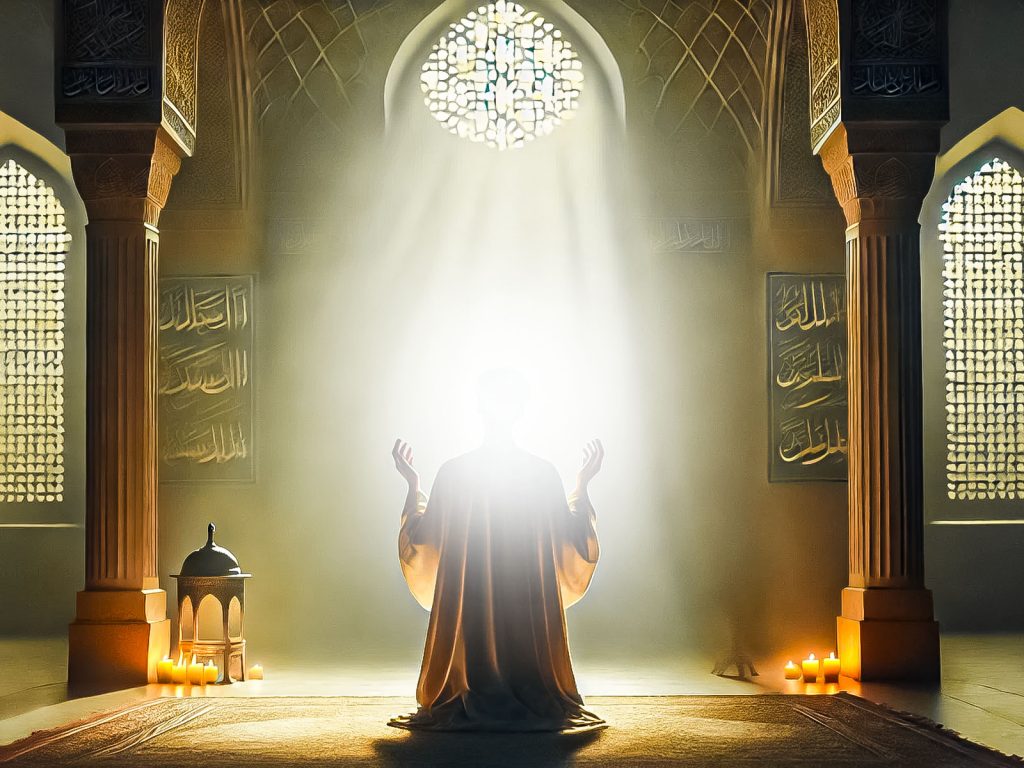One of the foundational teachings of all prophets has been to worship Allah (SWT), to the extent that none of their teachings were void of an act of worship. However, people’s perception of worship are not necessarily the same.
Some view it as a kind of transaction, compensation, and exchange of work with reward. This view of worship is similar to the case of a worker who puts his efforts and energy into a work day, only to expect his wage from his employer at the end of the day. Believers who worship Allah (SWT) with this view see the results of worship mainly in its reward, namely the goods and compensation they will receive in the hereafter.
The other understanding of worship is the spiritual view. In this view towards worship is the ladder towards proximity to the Creator. Worship becomes an ascent of the soul, elevation of the spirit towards the invisible center of the universe. Worship is a nurture of spiritual talents, spirit’s victory over the body, the best way to praise the creator of the universe (expression of one’s amusement and love towards absolute perfection and beauty), and finally a way to move closer towards Allah (SWT).
Traditions and worships of the Commander of the Faithful, Amir al-Mu’minin (PBUH) proves his take on the spiritual view of worship, which is a major source for worship and supplication in Islam after the Holy Quran and the Great Prophet’s traditions.
We will present a glimpse of his teachings about the meaning of worship by a few examples.
The Commander of the Faithful describes and categorizes worship in a short narration:
“There are people who worship Allah to gain His Favors, this is the worship of traders; while there are some who worship Him to keep themselves free from His Wrath, this is the worship of slaves; a few who obey Him out of their sense of gratitude and obligations, this is the worship of free and noble men.”[1]
In other words, one can find the ultimate of “purity in worship” in Imam Ali’s (PBUH) words:
“O My Lord, I have not worshiped You for the fear of punishment or for the desire towards heaven; rather, I worshiped You because I found You worthy of being worshipped.”[2]
How wonderful it is for one to worship his Lord through the teachings of Amir al-Mu’minin (PBUH); so that he can sit humbly to worship the Single Creator of the whole universe and whisper:
“O My Lord! This honor is enough for me to be Your servant and such pride is enough for me that You are my Lord. You are such that I like; so assist me in doing what You desire.”[3]
(Selected from contemplation Through Nahj al-Balaghah, by Murtadha Mutahhari)
Footnotes:
[1] “A people worshiped God with a desire to do so The worship of merchants, and if a people worshiped God out of fear, then that is the worship of slaves, and if a people worshiped God Thank you, for that is the worship of the free.” (Nahj al-Balagha, Short Words, Hikmat 237)
[2] “Elhi Ma Abdtak Khufa Man Aqabak and Do not covet your reward, but you are worthy of worship, and worship you.” (Bihar al-Anwar, vol. 41, p. 14; Awali al-Alali, volume 1, page 404)
[3] “My God, it is sufficient for me that you should be my usury It is enough of my pride that I am your servant. You are mine as I like, so grant me success in what you love.” (Kunz Al-Fawaid, Volume 1, page 386; Waram Collection, Volume 2, Page 111)


